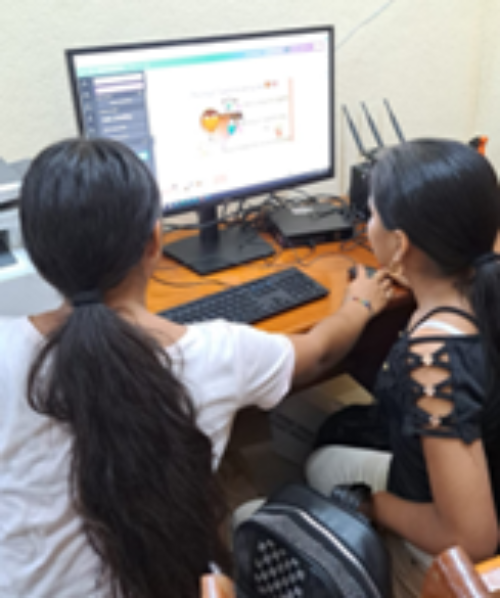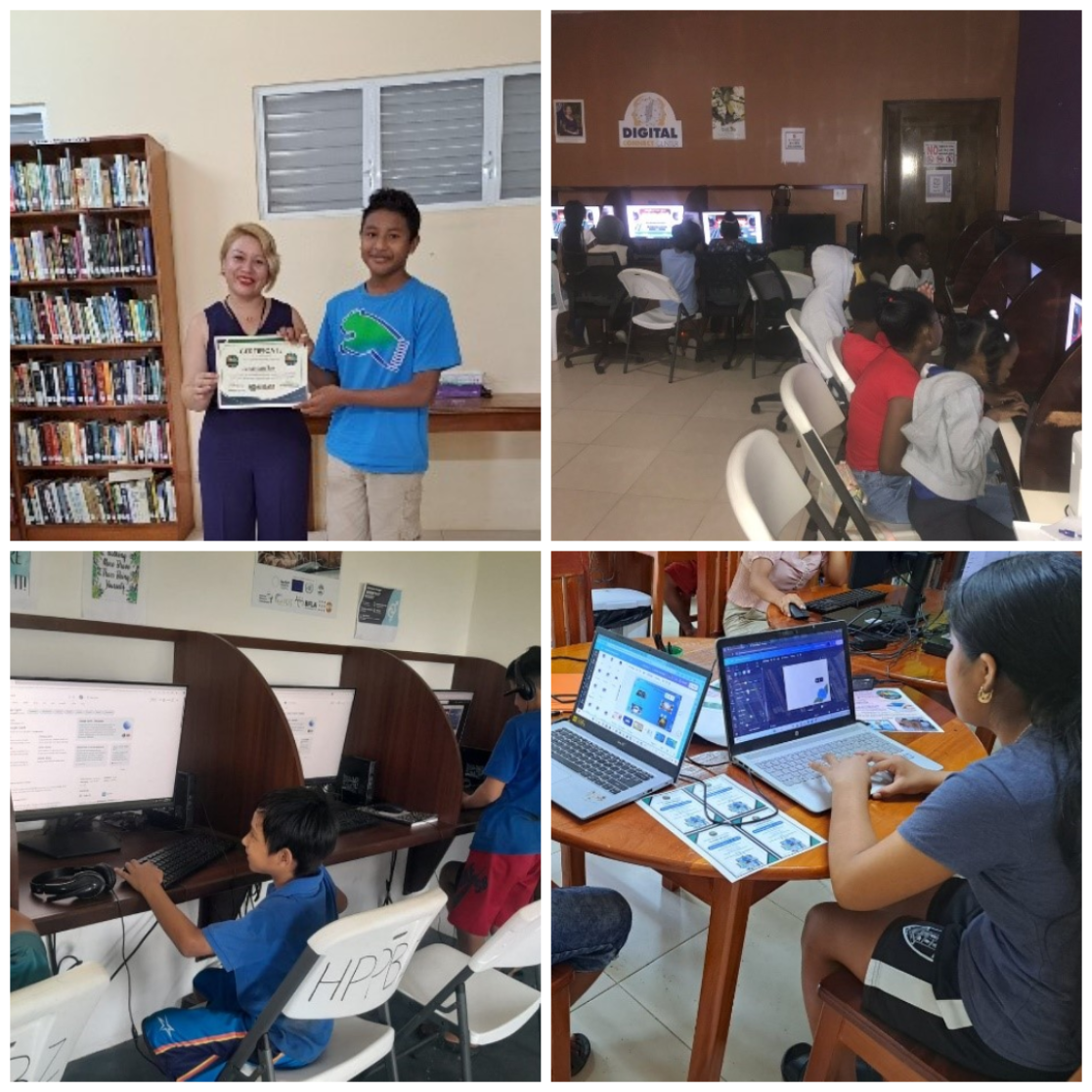Bridging the Digital Divide: Empowering Rural Communities Through Technology

Seven Community Hubs are now providing residents with vital opportunities to enhance their digital literacy and bridge the technology gap. The hubs are located Dangriga Town, Silk Grass Village, Independence Village, Bella Vista Village, Big Falls Village, San Pedro Columbia Village, and Punta Gorda Town; these hubs are not just places with computers and internet access—they are transforming lives by offering the tools and knowledge that residents need to thrive in a rapidly digitizing world.
For many people in these rural communities, digital literacy isn't simply a useful skill—it’s a critical step toward a better future. Limited access to technology has left residents, especially young people and job seekers, struggling to keep up. Schools in these districts often lack the resources to provide thorough technology education, and for many families, affording internet at home is out of reach. This disparity has been a major roadblock for those seeking better opportunities.
Karen Choc, thirteen-year-old student and participant at Bella vista Community Hub, expressed how crucial these hubs are in leveling the playing field. “Technology helps me in my education. It allows me to learn new things and gives me the chance to be successful in life.” For Karen, the training she received has opened doors to further learning and advancement that she might not have had otherwise.
The Community Hubs offering services thanks to EU financial support have become critical in breaking down these barriers. Open to everyone, regardless of age or gender, the hubs provide free access to computers, printers, and the internet—resources that are otherwise scarce. More than that, they are staffed by dedicated Hub Hosts who not only offer support for basic digital tasks but also lead formal trainings designed to teach essential skills. Whether it’s sending an email, printing a document, or learning advanced design software, these hubs are giving residents the chance to develop skills that will help them succeed in today’s world.
For some, the skills learned go beyond basic digital literacy. Marvin Chen, a twelve-year old student from San Pedro Columbia Community Hub shared how the training he benefited from helped him expand his creativity. “The Canva training was so beneficial! I can now make flyers, invitation cards, and PowerPoint presentations with ease. It’s not just useful for school—I can also create things for my family and friends.” For Marvin, the training was not just an educational experience but also a way to contribute to his community in meaningful ways.
Since the initiative started in 2023, over 882 individuals have participated in digital literacy training across the seven Community Hubs. These programs, led by Hub Hosts at the basic level and other professionals for more advanced courses, have not only provided participants with valuable skills but also certificates that help them stand out in the job market. The certifications give them a competitive edge in a world where technological skills are increasingly essential.

Humana People to People Belize
Sebastian Ico, a thirteen-year-old student and participant from San Pedro Columbia Community Hub, highlighted the impact of the training for his academic work. “I gained a diverse understanding of different tools and features in Canva. What I appreciated most was the patience of our facilitator, who made sure we all understood, even if we faced difficulties.” Sebastian’s experience mirrors the wider impact the hubs are having—empowering individuals to be more independent, creative, and capable of tackling challenges in a digital world.
These Community Hubs are making a tangible difference in people’s lives. By raising the digital competency of individuals, the initiative funded by the European Union and implemented by the NGO Humana People to People Belize is helping residents not only improve their everyday digital skills but also significantly enhance their employability and access to educational opportunities. In regions where internet access was once a rare luxury, the ability to send an email, format a resume, or design a project using software like Canva can be life-changing.
Digital transformation is a top priority of the European Union in Belize and in light of the EU’s Global Gateway, a new European strategy to boost smart, clean and secure links in digital, energy and transport sectors and to strengthen health, education and research systems across the world. Digital transformation is an important driver of sustainable development and offers great potential to amplify social and economic benefits across a large number of sectors. However, current rates of digitalization are very unequal: more than 3 billion people are not digitally connected, including many women.
By mid-2025 it is expected that up to 1,000 participants will benefit from various digital skills trainings (Java script, coding, cyber security, photoshop, quick books and Canva) and other skills training opportunities offered at the Community Hubs. As the stories show, the impact reaches beyond simple numbers. It’s about empowering individuals, equipping them with the skills to create better opportunities for themselves and their communities. Thanks to this digital transformation initiative these rural communities are no longer left behind but are now better prepared to thrive in an increasingly technology-driven world.
About the PLANTS Project
The PLANTS (Preparing Local CSOs to improve their Ability to facilitate an eNabling environment through Training and Service delivery) project is implemented by Humana People to People Belize and funded by the European Union. Running from February 2023 to June 2025, the project supports an enhanced environment for service delivery in seven rural communities in the Stann Creek and Toledo Districts. Through the creation of Community Hubs, it empowers local residents with skills and resources that foster digital literacy and improve their capacity for success in a rapidly advancing world.
